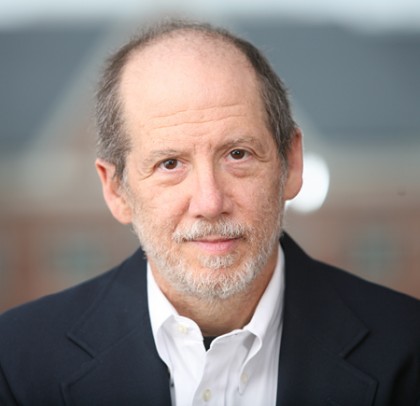Bert Vogelstein, a professor of oncology and pathology at Johns Hopkins and a pioneer in the field of cancer genomics, is among 11 scientists named the first winners of the world's richest academic prize for medicine and biology.

Image caption: Bert Vogelstein
The Breakthrough Prize in Life Sciences, announced Feb. 20, awards $3 million per recipient, more than twice the amount of the Nobel Prize. It was established by four Internet entrepreneurs—Yuri Milner, a Russian entrepreneur and philanthropist; Sergey Brin, co-founder of Google; Anne Wojcicki, the founder of the genetics company 23andMe and Brin's wife; and Facebook founder Mark Zuckerberg.
Wojcicki told The New York Times that the prize was meant to reward scientists "who think big, take risks, and have made a significant impact on our lives."
Vogelstein—co-director of the Ludwig Center at Johns Hopkins, Clayton Professor of Oncology at the Sidney Kimmel Comprehensive Cancer Center, and a Howard Hughes Medical Institute investigator—graduated from the Johns Hopkins School of Medicine in 1974 and began studying pediatrics at the Johns Hopkins Hospital. Seeing young children suffering from cancer spurred his interest in the disease. He spent two years at the National Cancer Institute before returning to Johns Hopkins in 1978 to direct the cancer center's molecular genetics laboratory.
In summarizing his discoveries of the last 30 years, Vogelstein says, "Cancer is, in essence, a genetic disease."
But more than 20 years ago, when Vogelstein first cracked open the Pandora's box that is cancer, revealing first one and then a series of genetic mistakes responsible for colon cancer, a link between genetics and cancer was a foreign concept. Today, his discoveries continue to lead his lab and others around the world in developing genetic tests, diagnostics, and therapies for cancer.
In 1989, Vogelstein's identification of p53 gene mutations in colon cancer began a tide of research linking alterations in the gene to other cancers. It is now known as the most common gene mutation in all cancers. Vogelstein's lab then discovered a series of other mutations linked to p53. The difficulty of making these discoveries is akin to finding one typographical error within 20 volumes of an encyclopedia, and then figuring out how it got there.
As a result of his findings, Vogelstein was ranked in 2003 as the most highly cited scientist in the world during the previous 20 years, according to the Institute for Scientific Information in Philadelphia. Vogelstein and his colleagues created gene tests for some rare forms of hereditary colon cancers, and later created a stool test to screen for genes linked to more common, sporadic colon cancers.
More recently, Vogelstein and his colleagues were the first to create genomic maps of cancer starting with breast and colon cancers. They've mapped scores of other cancer genes, leading to the discovery of mutations in the IDH1 gene, which are common in brain cancer.
With new, faster computing tools to sequence cancer DNA, Vogelstein's team completed 88 of the first 100 whole exomic (that is, all the genes in the genome) sequences of human cancers. These detailed maps create guides that scientists can use to pinpoint characteristics of each person's cancer and tailor therapies and diagnostics to guide treatment, and represent an important step toward personalized medicine.







